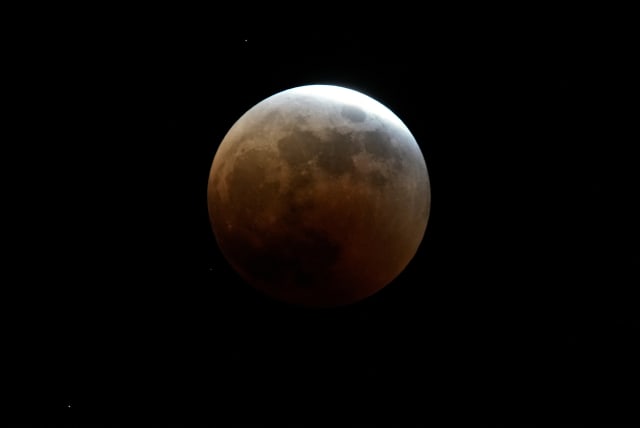What's inside the moon? - study

The researchers of the study combined geophysical and geodesic constraints from the Monte Carlo exploration with heat and energy simulations for different internal structures inside the Moon.
The Moon has an inner solid core, similar to the Earth's, a recent study discovered.
The study was published in the peer-reviewed journal Nature earlier this month. The first records of the Moon's inner structure were provided by seismological models from Apollo missions.
The researchers of the study combined "geophysical and geodesic constraints from Monte Carlo exploration" with heat and energy simulations for different internal structures inside the Moon. Essentially, the models observed by the research team could mimic the Moon's physical properties - which indicates the existence of an inner solid core in accordance with the Moon's mass and its rotations.
The inner core itself would be about 500 kilometers (310 miles), researchers estimated.
What else did the study show?
Additionally, the model also revealed a lunar mantle overturn, which is the idea that the thick middle layer between the thin crust and the outer core was slightly in motion. Some of its material may have risen from the core-mantle to the moon's surface which becomes part of the volcanic rocks that make up the moon's lunar crust.
The results of the study have researchers questioning the evolution of the Moon's magnetic field, which is now almost nonexistent, due to its inner core. Scientists believe that the Moon's magnetic field was once 100 times stronger than Earth's and was produced by its core.
Other recent studies on the Moon
Other recent information on the Moon saw new research conducted by NASA last month, where the space agency discovered a way to potentially extract oxygen from the soil found on the Moon. The space agency stresses the importance of this discovery, as they state it could greatly facilitate future moon missions.
Researchers at NASA’s Johnson Space Center in Houston succeed in extracting oxygen from simulated lunar soil in a vacuum environment.
Another study last month, conducted by the Indiana University School of Medicine, found that deaths by suicide increase during a full Moon. The research team looked at over 750 suicides between the years 2012 to 2016, where they found deaths by suicide significantly increased during the week of a full Moon, with people over the age of 55 showing an even greater increase.
Judy Siegal-Itzkovich contributed to this report.
Jerusalem Post Store
`; document.getElementById("linkPremium").innerHTML = cont; var divWithLink = document.getElementById("premium-link"); if (divWithLink !== null && divWithLink !== 'undefined') { divWithLink.style.border = "solid 1px #cb0f3e"; divWithLink.style.textAlign = "center"; divWithLink.style.marginBottom = "15px"; divWithLink.style.marginTop = "15px"; divWithLink.style.width = "100%"; divWithLink.style.backgroundColor = "#122952"; divWithLink.style.color = "#ffffff"; divWithLink.style.lineHeight = "1.5"; } } (function (v, i) { });

